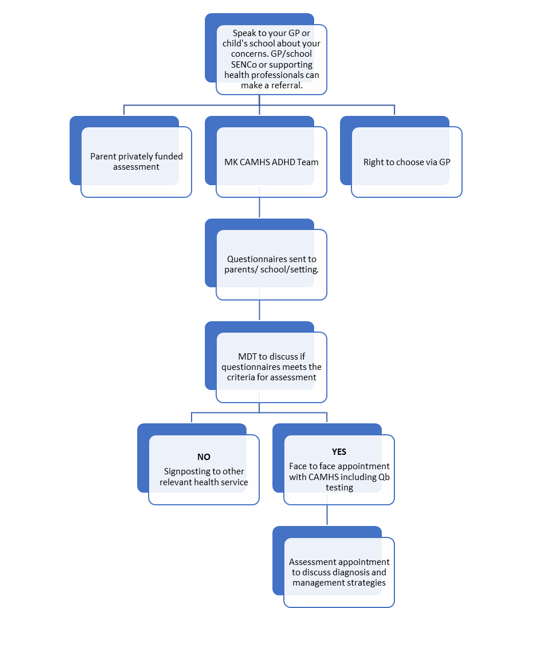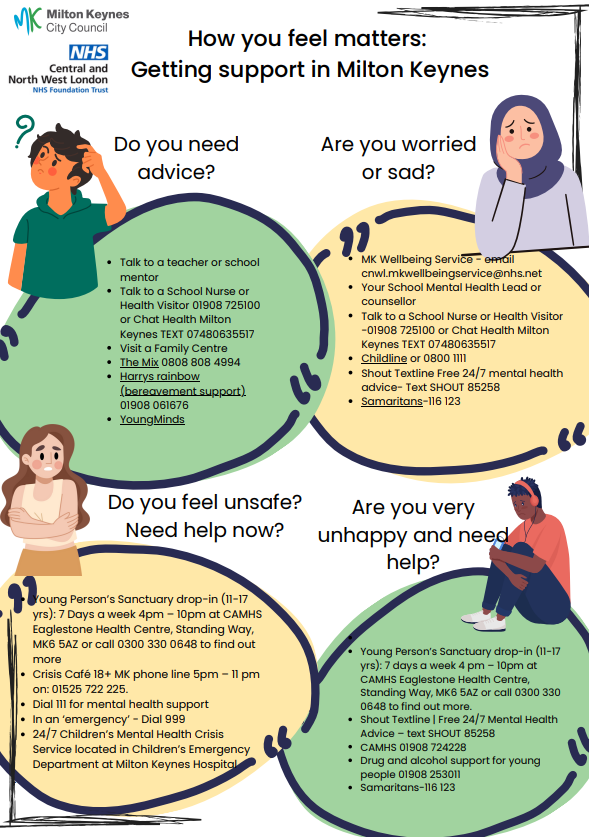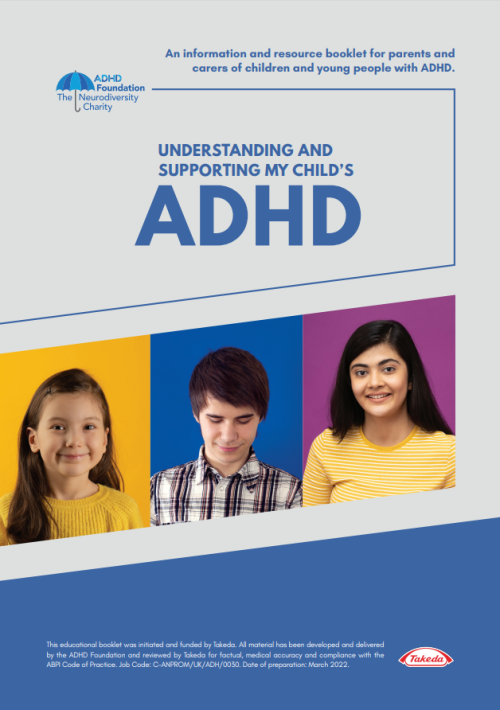Step 1
If you are concerned that your child may have ADHD speak to your GP or your child’s school. The conversation should be around any difficulties your child is facing and whether there may be an underlying cause for them that would warrant further assessment. There are many causes of difficulties in a child’s development and the question of ADHD will be considered as part of the whole picture
Your GP, school SENCo or supporting professional can make a referral. Young people cannot refer themselves or parents, but Young people over the age of 16 years can contact their GP for support with a referral if they wish to, however parents will need to be consulted. Looked after child , their guardian will be consulted up to the age of 18 years.
Step 2 (Option 1) NHS Referral – Local
ADHD assessments are completed by the MK CAMHS ADHD team
Speak to an education, health or social care professional who is involved with your child eg the GP, School SENCO, School Nurse, Social Worker. They will be able to complete an on-line referral for you via the CAMHS website using the referral form.
GPs already have this form available on their system as an electronic referral.
Step 2 (Option 2) – NHS Referral – Right to Choose
The government have also introduced something called “ Right to Choose”. This means that, for instance, should you decide the waiting time for your child’s ADHD assessment in your local area is too long, then you can choose alternative providers.
You can learn more about right to choose in the link below. This will show you the providers located across England, including wait times. Please note there may not be providers based in Milton Keynes.
Right to Choose - ADHD UK
Step 2 (Option 3) Seeking out a private assessment provider
Long waiting lists and lack of accessibility of Right to Choose throughout the UK means private diagnosis and treatment is a serious consideration for many, despite the financial cost often being a significant sacrifice. Most private assessment providers do not require a GP or School referral for a Private Assessment.
This is the process if you have been referred through to the MK CAMHS ADHD service:
The referral is triaged
All referrals are triaged by the ADHD multi professional team and if accepted for screening further information is requested from school and home. A screening questionnaire (Conners 4) and information pack will be provided for home and school to complete, including space for information about concerns from yourself and from your child.





